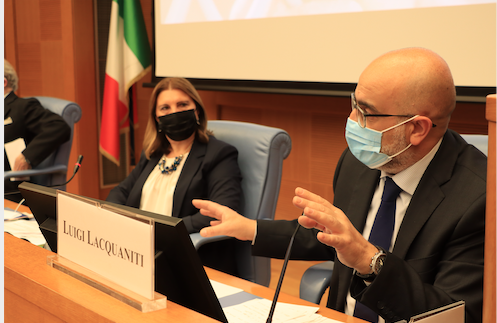LIREC Conference at the Italian Parliament: Discussion on the Freedom of Religion and State Security
Raffaella Di Marzio
On November 8, 2021, a conference was held in the New Hall of the Parliamentary Groups of the Chamber of Deputies, organized by Hon. Stefano Ceccanti in collaboration with the Center for the Study of Freedom of Religion, Belief and Conscience (LIREC).
Conference Theme: Religious Freedom and Security in the Secular State. The difficult balance between complementary and interdependent rights.
Hon. Ceccanti, R. di Marzio, LIREC, A. Dini Ciacci, The Church of Jesus Christ of Latter-day Saints
The conference was attended by representatives from the institutional world and from various religious and secular organizations and associations.
After opening greetings from the Honorary President Prof. Pietro Nocita, the Director Raffaella Di Marzio introduced the Conference by emphasizing how the topic was addressed in light of the important publication produced by the OSCE-ODHIR (Office for Democratic Institutions and Human Rights): Freedom of Religion or Belief and Security. Policy Guidance, published in 2019.
Freedom of Religion or Belief and Security
Policy Guidance
OSCE ODHIR 2019


































